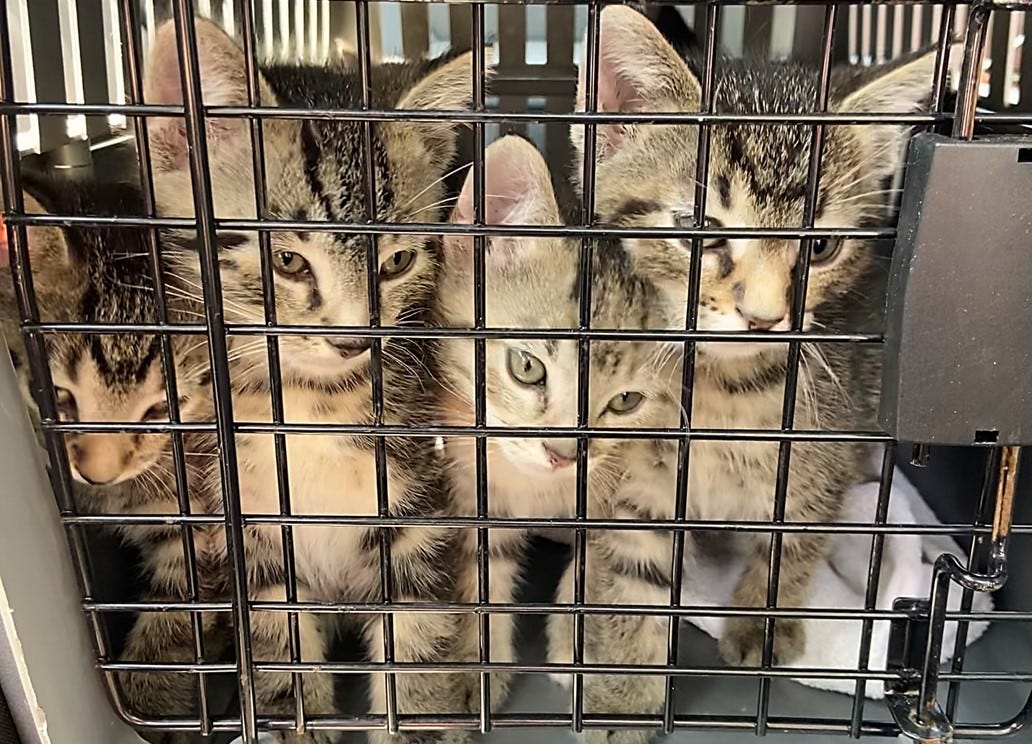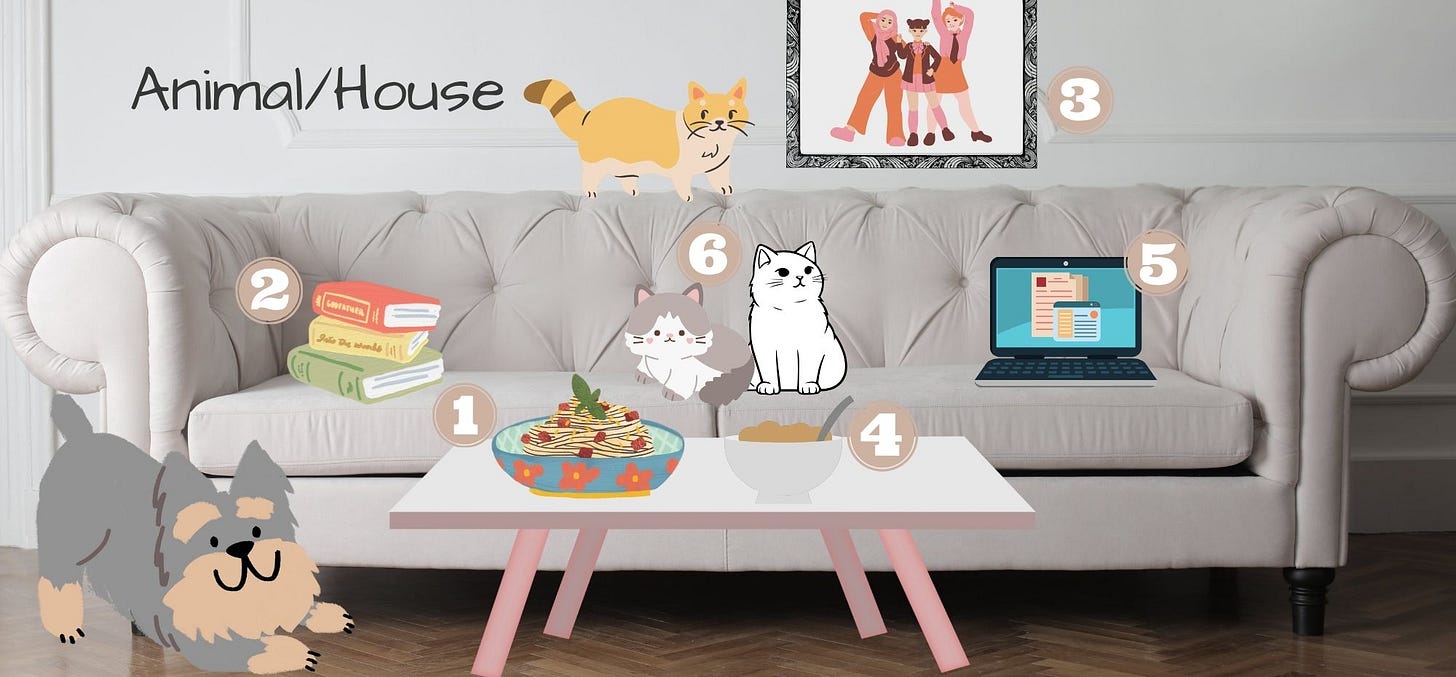Boxes and bags bulged from the front and back seats and trunk of my car as I navigated north. The contents had been collected for months at the pet food shelf in blue plastic bins labeled “Save for Leech Lake Legacy.” The bins that had once been someone’s recycling containers were now housing a different sort of reuse – the odds and ends of a beloved pet’s life that someone was willing to part with for the benefit of another. I’d been drawn to those bins for months. They reminded me of my grandma Mary.
Grandma Mary grew up with her siblings at a residential childcare facility after their parents were stricken with Tuberculosis. She spoke fondly of the welcoming environment that nurtured her from a young age and left her with a pay-it-forward sensibility. She shared proudly of her commitment to the church collection bins and her part in helping to distribute items to families in need. She had no shortage of compassion for those who had less.
When pet medicines and supplies, towels, and fleece blankets began spilling over the edges of the blue bins at the pet food shelf, I raised my hand to haul the items to Leech Lake Legacy. This volunteer-based animal welfare group was located four hours north of Minneapolis in a ruggedly beautiful but remote land devoid of veterinary services.
I parked my car in front of a former one-screen movie theater and started stuffing my boxes into the already crammed wood-paneled ticket room where animal carriers were stacked floor to ceiling waiting to be cleaned and sanitized before clinic opening the next day.
Jenny Fitzer, co-founder, greeted me with a hearty wave instead of a handshake, as per Covid protocol, then directed me to the movie room turned into an animal care facility—my home for the weekend. Forty or so steel kennels for surrendered cats and thirty odd kennels of varying sizes for surrendered dogs lined corners and walls. The southeast corner held three gleaming steel tables where volunteer veterinarians and vet tech teams would conduct exams, vaccinate pets, clip toenails, and provide whatever vet care could be administered with the equipment and supplies on hand. (That weekend I watched a team remove the quills from the face of a dog who had tangled with a porcupine!)
My tasks for the weekend included cleaning anything in need, feeding cats, scooping litter boxes, and prepping the transport carriers to move surrendered animals from Leech Lake Legacy to shelters and rescues across the state. While I tended my flock, cat handling expert and board member, Philip Henrichs, sat in the wood paneled room working his connections to ensure that whatever animal was taken in as a surrender had a place to be sheltered or fostered until adoption. Sitting beside Philip was board member Craig Berdan, chief operations overseer and chef for the weekend. I happily cleaned dishes after Craig made his signature grilled cheese sandwiches!
Jenny braved the winter winds to collect paperwork, surrendered animals, and patients for exams from local residents. I’d nestle cats and kittens into their temporary kennels complete with blankets, litter boxes, and food. In quiet moments, I’d review the reasons for surrender written on the paperwork: too many cats, loss of housing, job loss, death of a family member, no reliable access to pet food, unable to pay for veterinary care, no outdoor shelter, no space in the home for the animal(s) to live…
There weren’t many quiet moments that weekend to digest the meaning of what I had read. The dog kennels began filling with surrendered canines and a cacophony of barking, whining, and growling filled the theater. By noon on Saturday, 21 cats and kittens had been surrendered. By 5:00, an additional 44 felines were in my care, including 15 brown tabbies rescued from a house fire. On Sunday morning, two more cats arrived by transport from a small rescuer in a remote corner of the state.
Sunday morning at 10:00, 67 cats and kittens were tucked into blanket-lined carriers in van one. Thirty-three dogs and puppies were settled into van two. As the vehicles pulled out of the parking lot, the remaining volunteers turned their attention to tasks few people willingly choose. We scrubbed kennels and litter boxes smeared with poop. We washed countless food and water bowls. Floors needed mopping. Toilets needed cleaning. Laundry needed folding.
I plopped into the quiet of my car free of barking and whining. As the physical tension eased, I began to digest the bits and pieces of the chaotic weekend, oscillating between what was wrong and right with this world.
At the top of my list was the lack of accessible veterinary services in rural communities. In one weekend we took in nearly 90 animals that were the product of unwanted pregnancies. While they were being transported to new beginnings, countless cats, kittens, puppies and dogs were suffering through a harsh winter with no food or shelter. Those that survived would most likely reproduce, adding to the overpopulation problem.
I thought about the ongoing public opinion and failure of policies that continue to oppress Indigenous communities and their access to nutritional and cultural sovereignty. The Reservation boundaries are expansive. Property owned by Native peoples within the boarders, however, is a mere fraction, and non-contiguous, of the available land once defined in the original treaty.
I thought about the recent news that more people live in urban areas than rural communities. Services available to rural people continue to shrink as a result. Some people are forced to drive 20 to 40 miles to grocery stores and even farther to seek medical care. I recalled the few people I met that weekend who had no car at all. They were completely dependent on the goodness of neighbors and family for all their needs.
And therein lies the hope.
There are still so many good-hearted people in this world. I ate beside them at tables in the ticket room with donated supplies piled around us. They snapped on latex gloves to clean stinky messes. They gave up their weekends to reduce the suffering of animals and to help people who desired to help their pets.
I left the parking lot knowing Jenny, Philip, and Craig and the board members and volunteers I had yet to meet would return monthly and work between clinics to ensure the community has access to services.
I thought of my pay-it-forward grandma. If I could ask her to join me on my next trip north, I knew she’d say yes.
(Since my first volunteer weekend nearly four years ago, Leech Lake Legacy has been able to raise enough funds and inspire enough veterinary staff to volunteer their time that they now offer spay and neuter surgeries during most monthly wellness clinics. The demand is big. The waiting list is nearly 600 animals long!)
1. Affordable, easy meatless meals? Join my friend Diane Rose-Solomon of What’s Plant Based Cooking Good Looking in her virtual kitchen as she shows you how to cook six of her favorite plant-based recipes in celebration of Veganuary. Sign up now! The first class is January 10, 1:00 PT/4:00 ET.
2. Book or movie? Either way, A Dog Named Christmas should be on your list to read or watch. The ebb and flow of drama is worthy of its Hallmark status, but the way author Greg Kincaid weaves personal journey, family connection, and the personality of one special dog will have you turning pages.
3. What’s on every teens wish list for the holidays? To be seen, as is, without judgment and to be celebrated for their authentic selves. Parenting Teens & Tweens wrote a lovely post on five ways to be your child’s safe space as they work through the turmoil of adolescence.
4. Reduce, recover, reharvest? I’d never heard that term until I met Sue Marshall of NETZRO during a fundraiser at a brewery. Her free food samples did their trick and lulled me into a conversation. Sue’s company combined the spent grains from extracting sugar for the beer fermentation process with spent oatmeal to make the delicious upcycled granola I was munching. Check out her stories on the circular economy.
5. Got grief? Holidays can be a difficult time if you’ve lost a loved one, including a pet. This newsletter introduction to the podcast Parenting Through Grief by Emily Oster for ParentData is a great first step to understanding how to help yourself and your kids address your own grief.
6. Bored cat? My brain was on overdrive as I read through the tips from Class Act Cats I could use to “catify” our home and foster room to enhance wellbeing of our feline friends.
The one thing I’ve learned about pay-it-forward people is that they are tireless in their pursuit of a goal. I’ve watched Cara Sue Achterberg evolve from an award-winning novelist to the co-founder of the non-profit Who Will Let the Dogs Out?
She believes, and I do too, that the problem with animal suffering is not that people don’t care but that people aren’t aware of what is happening and what they can do to help. Cara and co-founder Nancy have traveled to over 120 shelters and rescues in 12 states across the south. They photograph dogs and people and write in order to give voice to both. Their goal is to raise awareness of the problems, illuminate the positives, and to offer ways for people to help. Their Emmy-nominated film, Ambers Halfway Home by Farnival Films is just one example of Cara’s talent to inform and inspire.
Here are a few additional posts you may want to read.








